Pat Bertram's Blog, page 199
May 2, 2014
Promotional Absurdities
Promotion gets absurd at times. Every day, almost, I get an email from Twitter telling me I can promote my books on Twitter. All I have to do to optimize my presence on Twitter is to buy Twitter ads. Yep. That’s what they say. But here’s my question. If those ads are so effective, why isn’t Twitter using Twitter ads to promote their promotional services instead of spamming me? Apparently, as annoying as spam is, it works better than anything else. At least for Twitter. Me? I unsubscribed from their emails.
A couple of years ago I got an external drive for my computer. It’s a great way to back up files. The program automatically updates the drive, so I never have to think about it. Well, that’s the way it’s supposed to work. In reality, it uses so much memory and CPUs that my computer runs slower than . . . me. (I sat here for a moment trying to think of a clever simile, and that’s the best I could come up with. Sheesh. At least the simile has the merit of being true. I do run slowly when I run, which is as seldom as possible.) Still, I’ve managed to make the drive work for my needs. The strange thing is, every few days I get an email from the company trying to get me to buy another external drive. If the drive worked th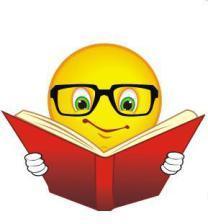 e way it’s supposed to, I’d never need another drive since files are simply updated, not rewritten. So why the constant barrage of promotion? Perhaps they know they sold me a crappy drive?
e way it’s supposed to, I’d never need another drive since files are simply updated, not rewritten. So why the constant barrage of promotion? Perhaps they know they sold me a crappy drive?
Today someone posted a link on one of my Facebook groups promoting their promotional services. The promotional article began with things you should not do to promote. All of my FB groups are promotion-free zones, so here’s a tip — before you promote in certain groups, be sure to check that such promotions are acceptable. And if promotion is not allowed, do not promote. I deleted not only the link but the person who posted the link. Problem solved . . . for me, anyway.
Every day I get dozens of requests to download someone’s ebook for free. These authors seem to think that because the book is free that their telling me about it isn’t promotion, that they are doing me a favor by allowing me the opportunity to read their less than immortal prose. To me, such promotion is every bit as bad as the authors who scream at every opportunity, “Buy my book.” I suppose commando tactics work, but not for me. A lot of these authors are on Facebook, and I have no qualms about unfriending such unfriendly folk. Who needs the aggravation?
Maybe I’m too picky. Maybe these are all reasonable ways of doing business. But I would never resort to such tactics.
Well, almost never.
Buy my books. Please.
***
Pat Bertram is the author of the suspense novels Light Bringer, More Deaths Than One, A Spark of Heavenly Fire, and Daughter Am I. Bertram is also the author of Grief: The Great Yearning, “an exquisite book, wrenching to read, and at the same time full of profound truths.” Connect with Pat on Google+. Like Pat on Facebook.
Tagged: absurdity of promotion, external hard drive, how not to promote, promotion, twitter ads


May 1, 2014
Call for Submissions
 Second Wind Publishing is accepting short stories, essays and poetry for its upcoming anthology, Wind Through an Open Door.
Second Wind Publishing is accepting short stories, essays and poetry for its upcoming anthology, Wind Through an Open Door.
All submissions should deal with the question: what happens to us when we pass from this life? Remembrances of lost loved ones, personal experiences, profound recognitions of the afterlife (or its absence)—regardless of religious persuasion—are all welcome.
There is no cost to submit an entry. There is a maximum of 7000 words for essays or short stories. All entries must be submitted no later than June 10, 2014. Those whose work is included in the anthology will receive two contributor copies. Additional copies will be available for purchase, with contributors receiving a 60% discount. Submissions and questions should be sent to mike@secondwindpublishing.com.
Best of luck to everyone!
Tagged: anthology submissions, Second Wind Publishing, short story submissions


April 30, 2014
All Good Stories Begin and End in the Heart of a Man . . . or a Woman
I just finished watching Last of the Dogmen for the fourth or fifth time, and I am still under the spell of powerful storytelling. The story itself is good, but what makes it special is the narration by Wilford Brimley. Oddly, the narration was added after filming and over the objection of the writer/director who was so upset by the use of supplementary text that he refused to write Brimley’s words. Apparently, in some versions of the movie, the narration was subsequently cut way down and redone in another voice, probably in response to viewer complaints since most people seemed to think the narrative annoying, so I’m lucky to have the version I do.
What’s interesting about the narration from a writer’s standpoint is that it’s a good example of tell don’t show. Normally, showing is the way to go, but there are many intangibles that cannot be shown, especially in a movie. What’s interesting about the narration from a viewer’s standpoint is that it adds a different dimension to the film, taking it beyond a fantasy/romance/western into the category of myth.
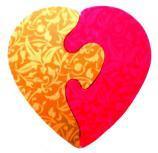 The narration starts out with Brimley intoning that “the story begins where all good stories begin and end — in the heart of a man . . . or a woman.” I like that line, mostly because of its truth. If a story doesn’t delve into what matters, then the story doesn’t matter. Another line of Brimley’s is “Sometimes you have to put your faith in something you can’t see.”
The narration starts out with Brimley intoning that “the story begins where all good stories begin and end — in the heart of a man . . . or a woman.” I like that line, mostly because of its truth. If a story doesn’t delve into what matters, then the story doesn’t matter. Another line of Brimley’s is “Sometimes you have to put your faith in something you can’t see.”
And that, of course, is why the movie speaks to me. Both characters are searching for something beyond their ordinary lives, as am I, and they find wonder and mystery they could never even have imagined.
Perhaps we are all looking for what lies beyond the façade of normal life, because really, how can this culture of ours be the apex of billions of years of creation? There must be a world of wonder running concurrently with this world of wage slavery and commercialism. We can’t all find Dogmen, of course, but we can find . . . something.
For thirty-four years, I did find “something.” Although I wasn’t looking for it, I found love, companionship, connection with another human being, which was magical in its own way. And now that he’s gone, I want a different form of magic, though I couldn’t even begin to define what I am looking for. Just . . . something.
And that “something” lies where the rest of my story is — in my heart. It’s just a feeling I have, that there’s something out there — or in me — to find. In Joe vs. the Volcano, another favorite movie of mine, Meg Ryan tells Tom Hanks, “My father says that almost the whole world is asleep. Everybody you know. Everybody you see. Everybody you talk to. He says that only a few people are awake and they live in a state of constant total amazement.”
While living in a state of constant total amazement sounds exhausting, it would be nice to waken just once.
As for movies, apparently what appeals to me in film is the mythic quest. Joe vs. the Volcano, like Last of the Dogmen, is another story of people finding what they never knew they were searching for. And it’s a story of luggage, but luggage is a topic for another day.
***
Pat Bertram is the author of the suspense novels Light Bringer, More Deaths Than One, A Spark of Heavenly Fire, and Daughter Am I. Bertram is also the author of Grief: The Great Yearning, “an exquisite book, wrenching to read, and at the same time full of profound truths.” Connect with Pat on Google+. Like Pat on Facebook.
Tagged: beginning a story, Joe vs. the Volcano, Last of the Dogmen, mythic quest, tell don't show, Wilford Brimley


April 29, 2014
A Breathtaking Piece of Folly
In 1953, a 45-year-old woman set out to walk for peace. She left everything behind, even her name, calling herself “The Peace Pilgrim.” When she hit 25,000 miles in 1964, she stopped counting the miles, but she kept going for many more years. She was walking in response to a spiritual awakening, and she’d taken a vow to “remain a wanderer until mankind has learned the way of peace, walking until given shelter and fasting until given food.” A minimalist hiker, she carried only a pen, a comb, a toothbrush, and a map, trusting to those she met to supply what she needed, though she never asked for anything. Her pilgrimage ended with her death in 1981.
The Peace Pilgrim had a mission, one that people responded to (though sometimes the response wasn’t what you might expect. On at least one occasion, she ended up in jail on a vagrancy charge). But what about someone who just set off without a mission? Would food, water, and shelter appear when needed? And wouldn’t it be a bit presumptuous to expect others to supply one’s needs?
On the home page of The Peacewalker Society, a group that existed to support another peace walker’s mission, is the quote, “Let go, trust and just take the first step. The path will unfold before you.”
Sounds to me like a recipe for death.
When I took my trip to hunt the wild poppy, I paid attention to the miles rolling past as if I were walking instead of driving, and that is when I realized the true foolhardiness of an epic walk. All I saw were miles and miles of windy, dusty, very hot roads with nothing to break the monotony. No water. No stores. No shade. It would have taken me many days of walking across that bleak landscape before I finally found what passes for an oasis in our modern world — a small shopping center with a convenience store, gas station, and fast food place.
That experience along with the reality of water tended to quash my idea of walking long distances.
And yet, and yet . . .
There the idea sits, like a toad in the back of my mind, waiting to leap at the first chance it gets. What would happen if I just took off? No heavy backpacks filled with water, food, and camping gear. No thoughts. No plans. Nothing but me and the next step.
Do I have the trust? Do I h ave the courage? And more importantly, do I have the mission? It’s that mission, I think, that keeps people going long after good sense tells them to stop. My life has always been about a quest for truth, and I imagine there would be much truth to be found on an epic adventure, but would truth be enough of a mission to fuel resolve?
ave the courage? And more importantly, do I have the mission? It’s that mission, I think, that keeps people going long after good sense tells them to stop. My life has always been about a quest for truth, and I imagine there would be much truth to be found on an epic adventure, but would truth be enough of a mission to fuel resolve?
O. Henry wrote, “The true adventurer goes forth aimless and uncalculating to meet and greet unknown fate.”
Makes me wonder — does a true adventurer take along a computer of some sort? At the beginning, The Peace Pilgrim kept a journal, but it was stolen, so she just wrote her life in the wind. But me, being an inveterate blogger, would need to post my thoughts, experiences, and photos online. Seems foolish — doesn’t it? — but then the whole idea is folly.
Still, as Mrs. Brown said in National Velvet, “I, too, believe that everyone should have a chance at a breathtaking piece of folly once in her life.”
Right now I still have responsibilities, but one day they will end. And then . . . perhaps it will be time for my own breathtaking piece of folly, whatever that might be
***
Pat Bertram is the author of the suspense novels Light Bringer, More Deaths Than One, A Spark of Heavenly Fire, and Daughter Am I. Bertram is also the author of Grief: The Great Yearning, “an exquisite book, wrenching to read, and at the same time full of profound truths.” Connect with Pat on Google+. Like Pat on Facebook.
Tagged: Mrs. Brown, National Velvet, O. Henry, piece of folly, The Peace Pilgrim, The Peace Walker, true adventurer


April 28, 2014
The Peace that Comes from Knowing You are Blessed
I’ve been taking stock of my life lately. Well, to be strictly accurate, my life has been taking stock of me. I am not purposely putting my past into perspective, it’s just that I see the horrible things that happen to people, the terrible physical and mental problems that plague them, the struggles they deal with on a regular basis, and I realize my life hasn’t been so bad. And of course, the request for my resume got me to thinking about what I’ve done (and haven’t done) with my life.
I didn’t have an easy time of it. Money was hard to come by no matter how hard we tried (“we” meaning my life mate/soul mate and I). We often lived hand to mouth; turned the thermostat down in the winter to almost unlivable conditions; didn’t 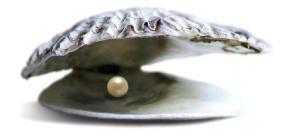 have an air conditioner, which made the summers just as unlivable; bought food only on sale or at the lowest price available; never bought new cars; seldom bought new clothes or shoes.
have an air conditioner, which made the summers just as unlivable; bought food only on sale or at the lowest price available; never bought new cars; seldom bought new clothes or shoes.
And yet . . . I didn’t have a hard life, either.
We always managed to get through the winters and summers, had enough to eat (and it was all delicious and healthy since we cooked everything from scratch). We kept our vehicles running, always had plenty of library books around, planted dozens of trees and bushes and watched them grow. And we had each other. Although his dying about killed me, I got to be there with him through it all, and even was privileged to feel profound grief for him after he was gone.
I’ve been healthy more often than I’ve been ill. I’ve suffered bouts of depression at various times in my life, but my happy days outnumbered the sad/depressed ones. I laughed more than I cried, smiled more than I frowned. My mind works. (At least I think I it does. Since it’s my mind telling me that it works, would I know if it wasn’t?) My immune system is chugging along — even my allergy problems are a sign that my immune system is doing what it’s supposed to do. My body mostly does what I ask of it, and seems to have as much — or rather, as little — balance, elasticity, and endurance it always had.
Even my current situation — looking after my 97-year-old father and doing what I can for my dysfunctional brother — is a blessing. I have free time to indulge in blogs such as this, live in a nice area, enjoy being with friends, have the ability to participate in activities such as walking and exercise classes that help keep my body and mind in working order.
At the moment, I have no regrets, feel guilty about nothing, am angry about nothing. I haven’t even had a grief upsurge in a while. (As a matter of fact, the 27th of the month — the day of his death — passed with but the briefest acknowledgment of the date.)
I’m not sure why I’ve been taking stock — maybe getting ready for the next part of my life when I have to start dealing with the negative aspects of aging, when I have to deal with being on my own with no one to love or care for, when all that stretches before me is unchartered territory. Meantime, I’m enjoying the peace that comes with knowing I am blessed.
***
Pat Bertram is the author of the suspense novels Light Bringer, More Deaths Than One, A Spark of Heavenly Fire, and Daughter Am I. Bertram is also the author of Grief: The Great Yearning, “an exquisite book, wrenching to read, and at the same time full of profound truths.” Connect with Pat on Google+. Like Pat on Facebook.
Tagged: feeling blessed, happy more often than sad, laugh more than cry, putting the past into perspective, taking stock of life


April 27, 2014
A Resume Worth Writing
For years, I’ve been doing social networking for a company on a largely volunteer basis. Recently they asked for my resume and were quite miffed when I didn’t send it. The truth is, there is nothing in that potential resume that would help them in any way — it would not affect the work I do, would not change my results, would not even give them any bragging rights if they were trying to get funding since I’m basically self-educated and self-employed.
I’m not sure what they expected to find on that resume. I’ve never set myself up as an expert in online work and promotion. Although I know how to navigate the internet, how to create blogs and profiles on networking  sites, even how to develop an online presence, I’m self-taught in this as with everything else in my life, and none of these skills show up anywhere in my work history.
sites, even how to develop an online presence, I’m self-taught in this as with everything else in my life, and none of these skills show up anywhere in my work history.
Actually, I’ve never set myself up as an expert in anything. I am what you see. This, to me, is the beauty of the internet, especially blogging. If you are an expert in some facet of life or business, then it makes sense to splash your credentials across cyberspace, but if all you are trying to do — as I am — is to make sense of life, love, relationships, death, purpose, aging, then the only credentials you need are to live, think, write. Online, you are what you do. Your words are who you are. Whatever you are in offline life is immaterial. Failures don’t count. Clothes don’t make the man or woman. Possessions have no substance. Physical limitations disappear. A wall full of degrees doesn’t automatically make you better than the person with a high school education. If you act like an illiterate slob, then that’s who you are. If you act like a grande dame, then that, too, is who you are.
Nowhere else in the world does this sort of egalitarianism exist. I do understand that offline we need those various ways of categorizing people, though now that I think about it, they are just as unimportant offline as online. If you have a car that gets you where you need to go, does it matter what the car is or how much it costs? Outside of your job, does it matter to anyone but you what degrees you have? If your clothes keep you warm, if you enjoy wearing them, does it matter if they are brand names, off-rack, handmade, or thrift store castoffs? If other things in life are more important to you than your bank account, does it matter if you have much money or none at all?
I suppose the problem with the request for my resume is it reminded me that on paper I seem like a failure since so many of my business ventures didn’t work out, but I don’t believe in failure as something separate. It’s all part of life — the good and the bad, the financial successes and fiascos. And more to the point, where on a resume is there a place for life? I loved totally, grieved profoundly, affected many lives, laughed and cried, learned, and even in my deepest sorrow found that life was worth living. Now that’s a resume worth writing!
***
Pat Bertram is the author of the suspense novels Light Bringer, More Deaths Than One, A Spark of Heavenly Fire, and Daughter Am I. Bertram is also the author of Grief: The Great Yearning, “an exquisite book, wrenching to read, and at the same time full of profound truths.” Connect with Pat on Google+. Like Pat on Facebook.
Tagged: expert in life, life is worth living, making sense of life, resume, social networking, volunteer work


April 26, 2014
Bad Luck?
I’ve never considered myself especially lucky. I don’t win contests, though occasionally I do come in second or third. (Most recently, I was a runner-up for the Sharp Writ Book awards in the category of science fiction for my novel Light Bringer.) In group gift exchanges, I always get the gift that no one quite seems to be able to identify or figure out what it does. I seldom win a door prize, and I’ve never won a raffle of any kind.
Today I attended a fundraiser wit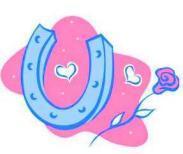 h friends. There were a couple of dozen gift baskets being raffled, and we got to choose which basket(s) we would like to win. I found one basket that only one other person had chosen, so I used all of mine raffle tickets for that basket, thinking to up the odds. When I didn’t win, I laughed with my friend about my bad luck, but then on the way home I reconsidered.
h friends. There were a couple of dozen gift baskets being raffled, and we got to choose which basket(s) we would like to win. I found one basket that only one other person had chosen, so I used all of mine raffle tickets for that basket, thinking to up the odds. When I didn’t win, I laughed with my friend about my bad luck, but then on the way home I reconsidered.
Bad luck?
I’d driven to the event center in a 42-year-old car that still runs well, spent the day with good friends and other congenial people, shared smiles and laughter, ate a nice lunch, danced a bit, enjoyed playing with the raffle tickets, and on top of all that, got to help support a good cause.
Seems to me as if I’m very lucky!
***
Pat Bertram is the author of the suspense novels Light Bringer, More Deaths Than One, A Spark of Heavenly Fire, and Daughter Am I. Bertram is also the author of Grief: The Great Yearning, “an exquisite book, wrenching to read, and at the same time full of profound truths.” Connect with Pat on Google+. Like Pat on Facebook.
Tagged: bad luck, fundraiser, good friends, good luck, raffle tickets, Sharp Writ Book Awards


April 25, 2014
The Problem With Writing About People You Know
A few weeks ago when I was having lunch with friends from my exercise class, someone suggested that I write a book about the class. One lovely woman even volunteered to be a murder victim, and the teacher offered to be the murderer (or rather, she offered a motive for the crime that indicated she was the one who did the dire deed).
I thought it would be fun — write a chapter now and again, print it out, and let everyone read it. If they had suggestions about what they wanted their character to do, I could incorporate their ideas in subsequent chapters.
The more I got to thinking about it, though, the more impossible it seemed. The idiosyncrasies that make people unique, interesting, lovable are not necessarily traits they are proud of. In fact, they might not know they have the traits or if they do know, they might not realize that others see those traits. We always hope people see us as better than we see ourselves, and we certainly don’t want to know that someone might see what we wish no one saw. And even when we do know our  shortcomings, such as being overweight, I’m not sure we would take kindly to being immortalized in such a way. (Not that my books are immortal, but you know what I mean.)
shortcomings, such as being overweight, I’m not sure we would take kindly to being immortalized in such a way. (Not that my books are immortal, but you know what I mean.)
Although the characters would be written without judgment, just a simple swish of a literary brush, these women might feel hurt, and I am not interested in hurting anyone, especially not people I’ve grown fond of. Now, if one of them had done me wrong, I would gladly put her in a book and kill her off, but so far the worst offense was . . . hmmm. Can’t think of anything except for perhaps a brief touch of cattiness.
Yesterday one of the women asked me about the project, and when I told her my dilemma, she suggested writing the book but using a different setting for the group. A rowing crew, for example. That way I could write the people as I saw them, and no one would be the wiser. “Except me, of course,” she said, “but you wouldn’t say anything bad about me.” The problem with her scenario is that I know nothing about rowing, and anyway, what is a rowing crew of no-longer-young women doing in the middle of the desert? (Though that could be a story in itself!)
I suppose I could hand out a questionnaire, asking the women if they would like to be part of the project, if I could use their real name and if not what name they would like me to use, and most importantly, how they would like to be described. I’d end up with a cast of wonderfully graceful, talented, brilliant, and beautiful characters of course, but there is truth in that. Despite their idiosyncrasies (or maybe because of them), despite their aging bodies and physical limitations, they are all in their own way, wonderfully graceful, talented, brilliant, and beautiful.
One problem is that each of these wonderfully graceful, talented, brilliant, and beautiful women would have to have larceny in her heart since each would be a suspect with a dark secret she is trying to hide, and that could lead to confusion about how I actually perceived each of them.
The main problem, of course, is that if I figure a way around all the other problems, I might actually have to write the dang thing.
***
Pat Bertram is the author of the suspense novels Light Bringer, More Deaths Than One, A Spark of Heavenly Fire, and Daughter Am I. Bertram is also the author of Grief: The Great Yearning, “an exquisite book, wrenching to read, and at the same time full of profound truths.” Connect with Pat on Google+. Like Pat on Facebook.
Tagged: characterization, murdering a friend, putting people in a book, writing about people you know


April 24, 2014
If You Want to be Happier …
A recent study by the London School of Economics measured the relative value of different leisure activities, giving them the emotional equivalent of a raise in pay.
Their conclusion: dance is associated with the happiest people, and was worth £1,671 ($2,808.28) a year.
Swimming came next with a worth of £1,630
And visiting libraries came in third with a worth of £1,359
Other values of your search for happiness:
Taking part in team sports – £1,127
Arts and crafts – £1,020
Attending plays – £999
Individual sports – £828
Attending concerts – £742
Conversely, keeping fit through classes and gym exercise brought so much unhappiness, it was the equivalent of a pay cut of £1,318.
So, if you want to be happier, dance! As Snoopy said, “To live is to dance, to dance is to live.”
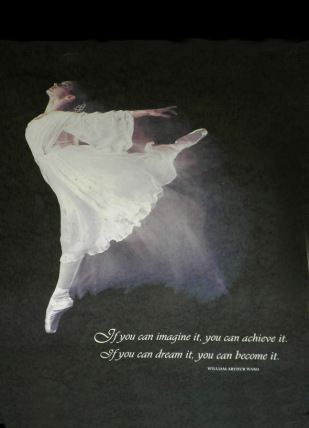
***
Pat Bertram is the author of the suspense novels Light Bringer, More Deaths Than One, A Spark of Heavenly Fire, and Daughter Am I. Bertram is also the author of Grief: The Great Yearning, “an exquisite book, wrenching to read, and at the same time full of profound truths.” Connect with Pat on Google+. Like Pat on Facebook.
Tagged: dancing and happiness, how to be happier, importance of libraries, London School of Economics study, what is the relaive worth of dancing, what makes people happy


April 23, 2014
Are We Responsible for Responsiblity?
I’ve been thinking a lot about responsibility lately. Well, no wonder — I’m looking after my 97-year-old father and doing the best I can for my dysfunctional brother. I’ve always had an enormous sense of responsibility but now I’m wondering if perhaps that isn’t a good thing.
I was the oldest girl in a large family, and as such, I had responsibility thrust on me at an early age. (I never used to admit I was from a large family. I felt ashamed, as if I had been the one to choose to have a large family in overpopulated times. It took me half a lifetime to realize I had no blame in the matter. No responsibility.)
Responsibility means: 1) the state or fact of having a duty to deal with something or of having control over someone. 2) the state or fact of being accountable or to blame for something. 3) the opportunity or ability to act independently and make decisions without authorization. 4) a thing that one is required to do as part of a job, role, or legal obligation. 5) a moral obligation to behave correctly toward or in respect of.
It’s unusual for all the definitions of a word to apply in one of my ram bling discussions with myself, but in this case, all of them do. Well, except for perhaps #3. I often have a hard time making decisions when all things are equal and it doesn’t make any difference to me what I decide. For example, I can never decide where to go to lunch if I’m out with friends. It’s being with the friends that matters to me, not the food that accompanies the conversation.
bling discussions with myself, but in this case, all of them do. Well, except for perhaps #3. I often have a hard time making decisions when all things are equal and it doesn’t make any difference to me what I decide. For example, I can never decide where to go to lunch if I’m out with friends. It’s being with the friends that matters to me, not the food that accompanies the conversation.
I’ve never liked having control over anyone, another leftover from childhood when I would be left in charge, yet I do often feel as if I have a duty to certain people, or perhaps a moral obligation to them. I also sometimes feel responsible for situations that have nothing to do with me, other than that I am there and I care. For example, if I express an opinion or preference, no matter how casual, and another person acts on that opinion with bad results, I blame myself, though I’m learning not to.
Some of my youthful research into spirituality added to this sense of responsibility. If life is created by thoughts, including ours, then everything we do affects the whole. I don’t believe, as many people do, that we create our own illnesses, or that we remain sick because our belief isn’t strong enough to make us well. Nor do I believe we create our problematic situations. I do know that sometimes (maybe most times) things simply happen, and all we can do is deal with them, and yet, the idea still lingers that somehow, somewhere, we are the authors of our lives, the ones responsible for putting ourselves in crises.
I once liked the saying: “No snowflake in an avalanche ever thinks it’s responsible.” It wasn’t until just now that it dawned on me that no snowflake is responsible. The snowflake didn’t create the weather, didn’t create the snowfall, didn’t create the conditions for an avalanche. It didn’t even choose where it was to land.
I’m not much of a snowflake in our society. I’ve only owned one car, and that still-running 42-year-old vehicle has but 153,000 miles on it. I recycle the old-fashioned way — wear out, use up, make do. I trod as lightly as I can, and yet, I am still a snowflake, however unwittingly, causing the avalanche of human destruction on this earth.
So, where does responsibility begin and end? Am I responsible for the earth, for our society’s problems, for my family, my father, my brother?
Am I responsible for the death of my life mate/soul mate? Now that I know the answer to. Of course I am not responsible, and yet there is something deep in me, something beyond consciousness, that believes perhaps I didn’t do enough, didn’t hold on to him tightly enough, didn’t love enough.
See? An enormous sense of misplaced responsibility.
So, are we responsible for responsibility? If things go wrong in the world (or in a family or community), how much of the accountability or the blame belongs to us? Do we in fact have control over anything, or do things just happen — will we, nill we?
Research into the mind shows that often a decision is made before we become aware we made the decision. One test had people choose which light to light up, but often the light lit up before it was chosen, which led researchers to wonder if the people chose the light in the millisecond after it lit up. Perhaps, as this research might indicate, we have no real choice in what happens. In which case, how can there be responsibility?
I suppose it’s also possible that no matter what we do, we’d get the same results. Although that idea wasn’t formulated when I wrote the first chapter of Break Time, the soon-to-be-published steampunk anthology, it’s how the story progressed. Every time Al went back to the past to save his wife and child from death, they ended up dying in another accident. If the end is the same no matter what we do, how can there be responsibility?
And is it possible (or even acceptable) to unshoulder a lifetime of responsibility?
Just wondering.
***
Pat Bertram is the author of the suspense novels Light Bringer, More Deaths Than One, A Spark of Heavenly Fire, and Daughter Am I. Bertram is also the author of Grief: The Great Yearning, “an exquisite book, wrenching to read, and at the same time full of profound truths.” Connect with Pat on Google+. Like Pat on Facebook.
Tagged: no snowflake in an avalanche, responsibility, responsible for family, responsible for society's problems, responsible for the earth, responsiblity to a sibling





